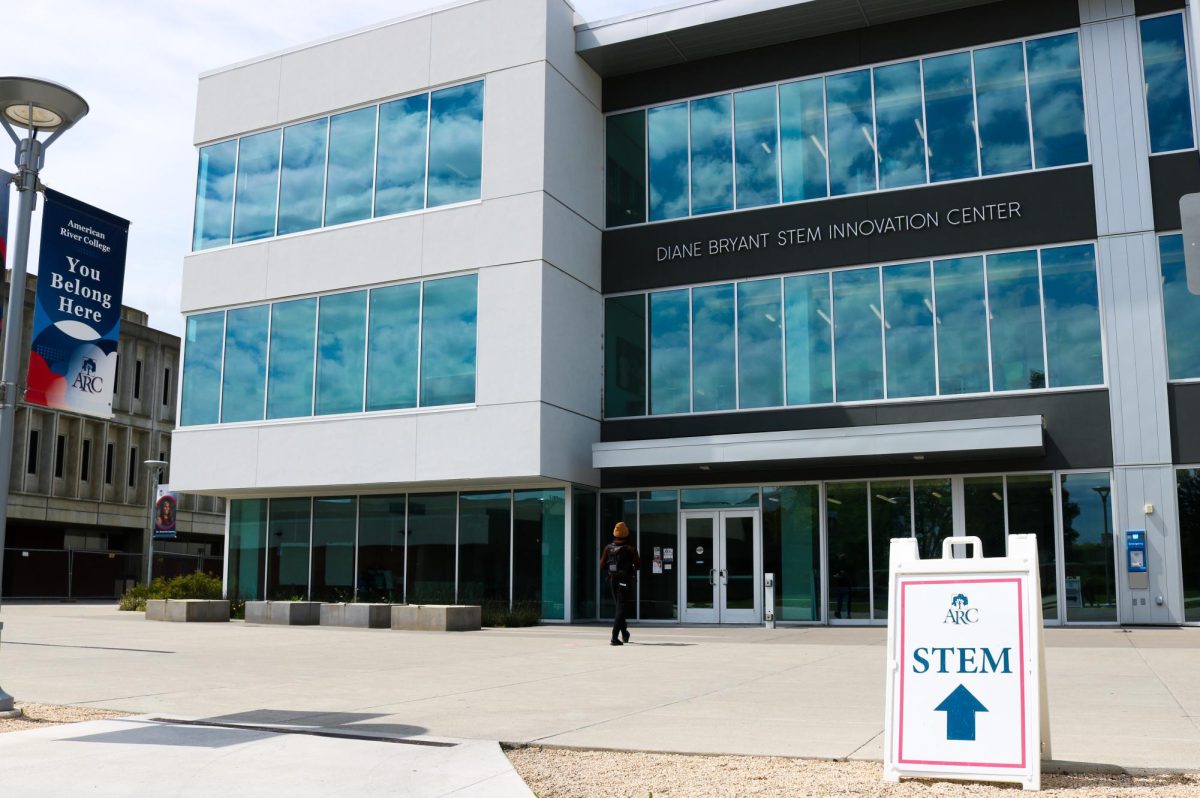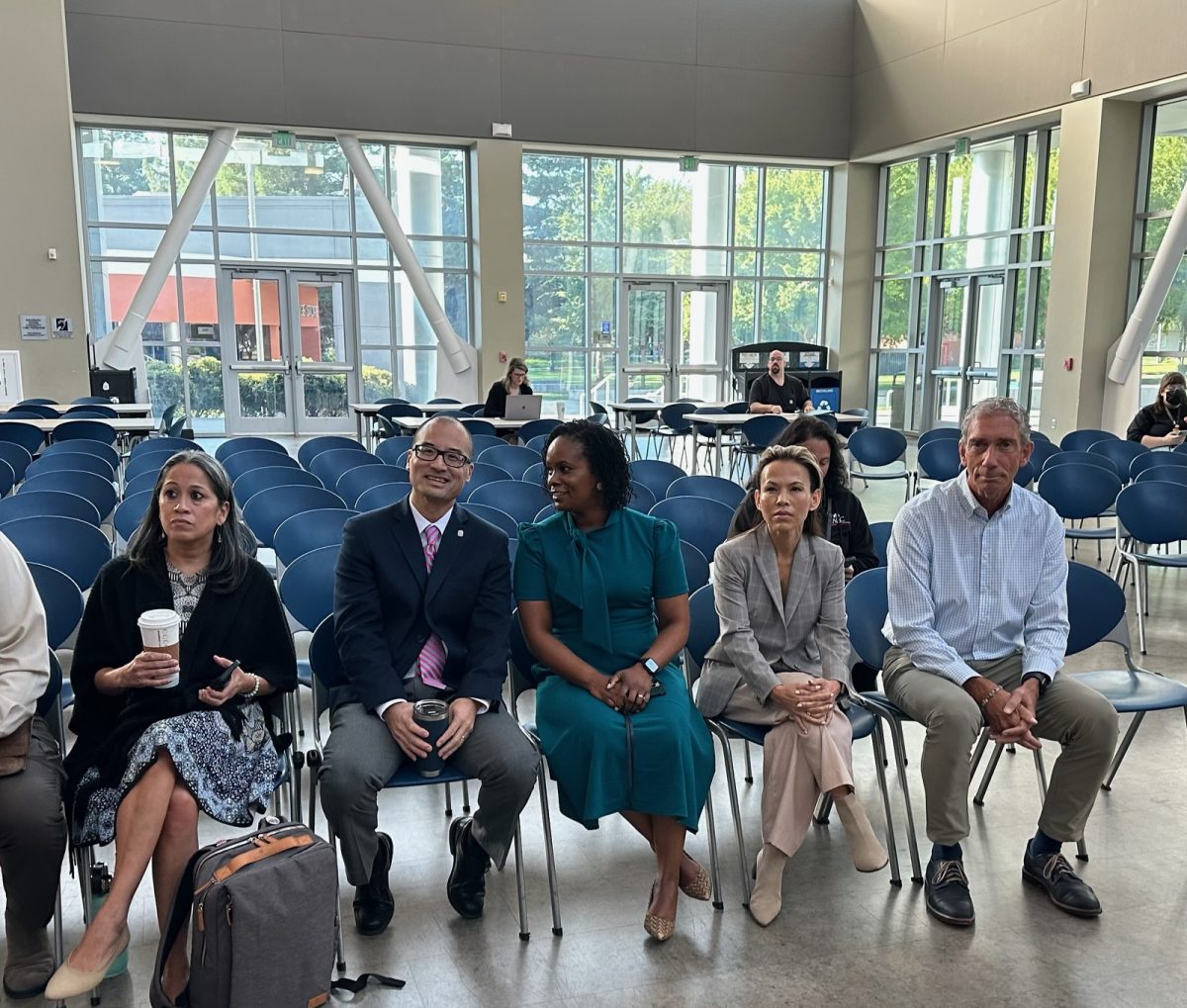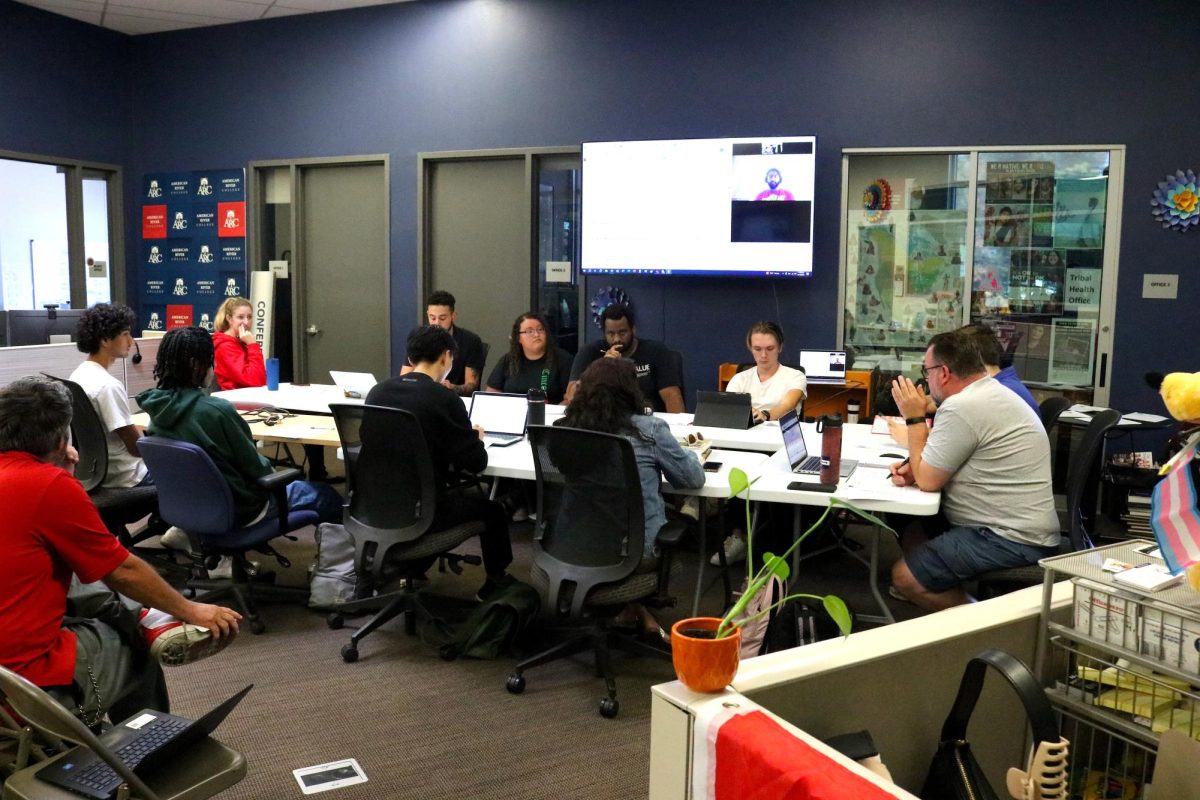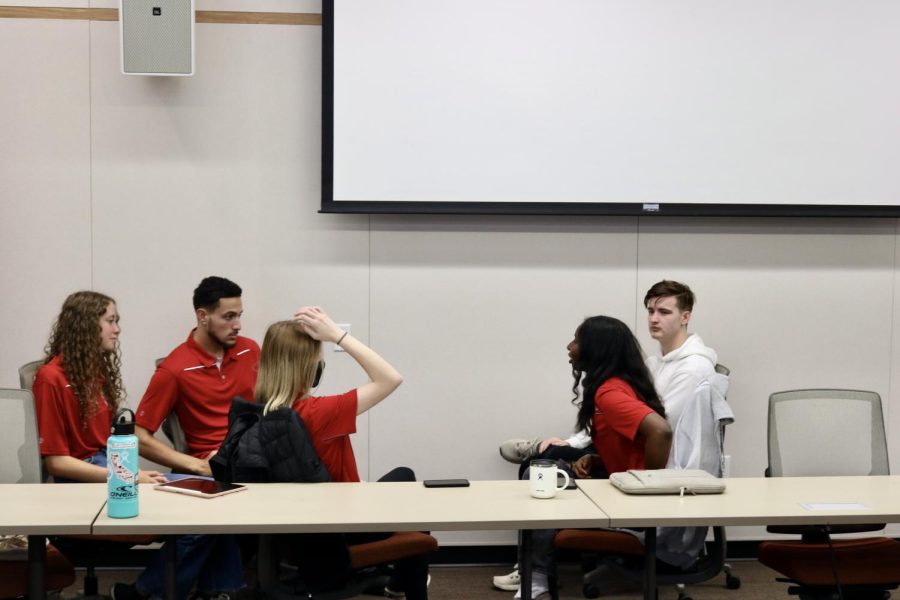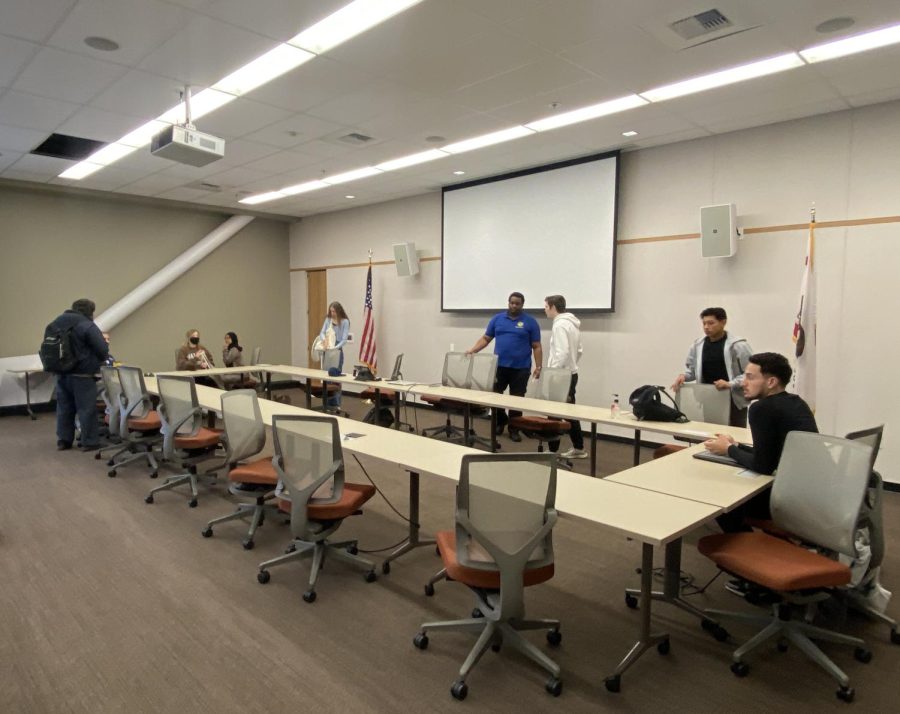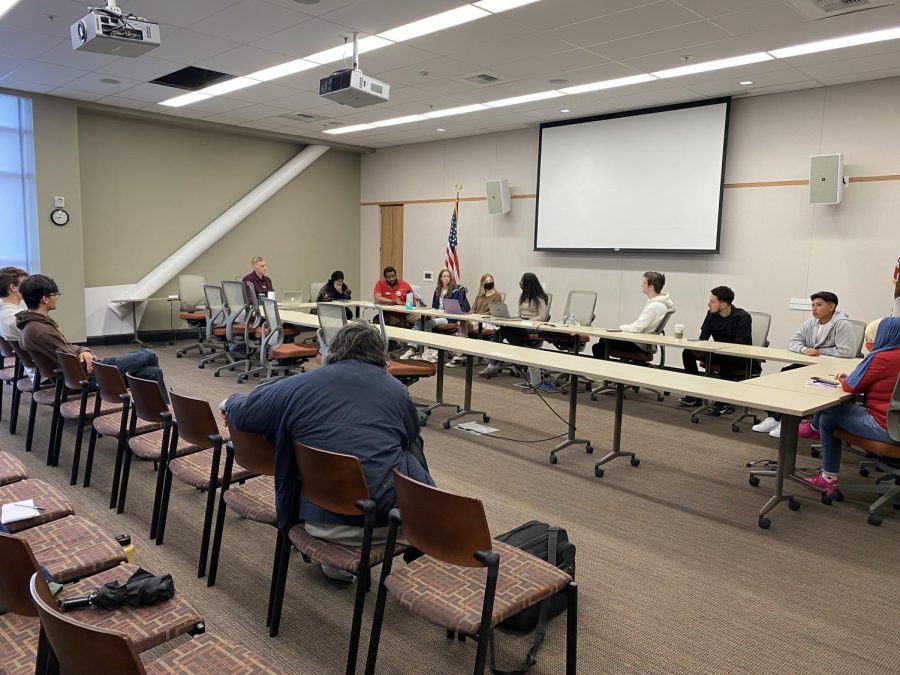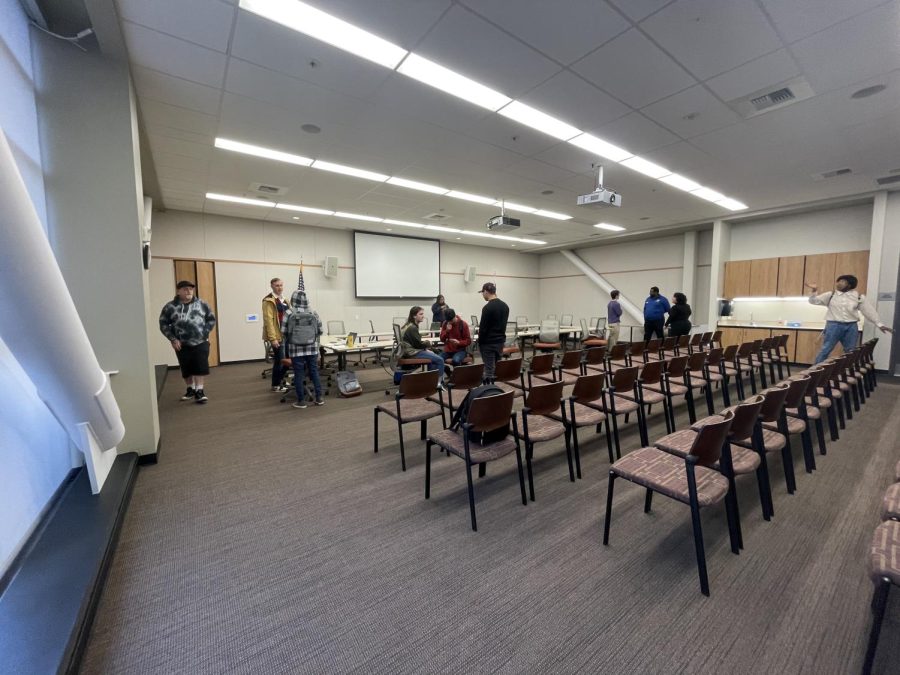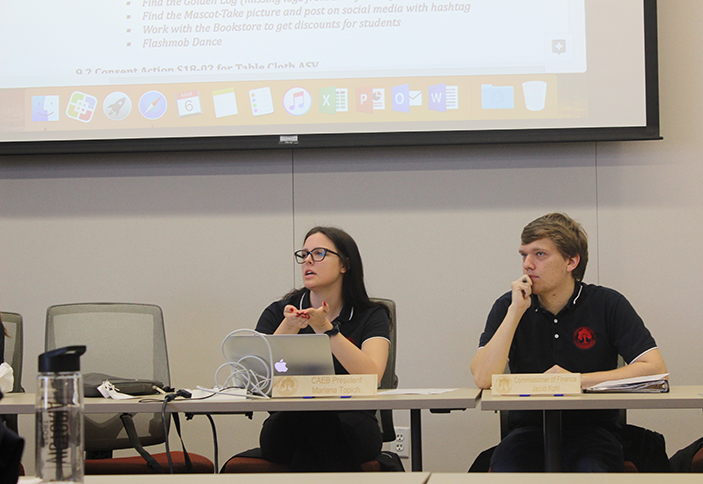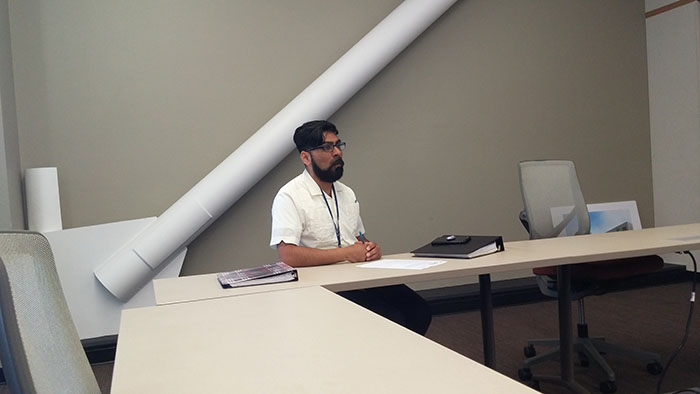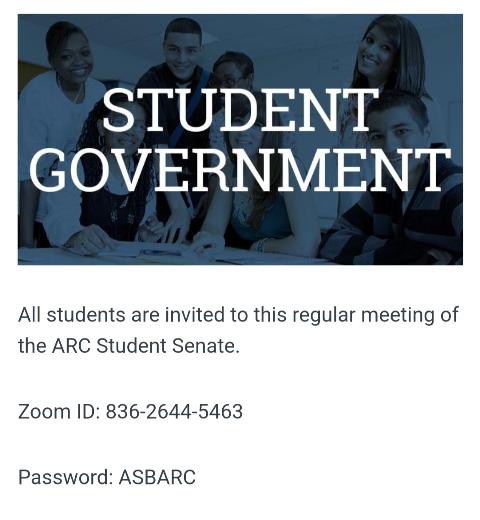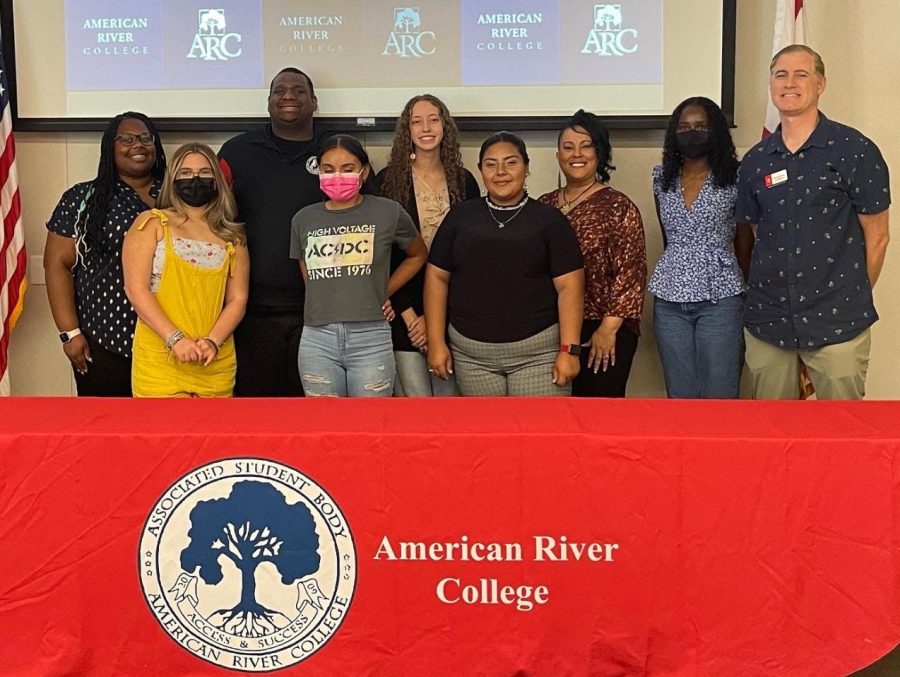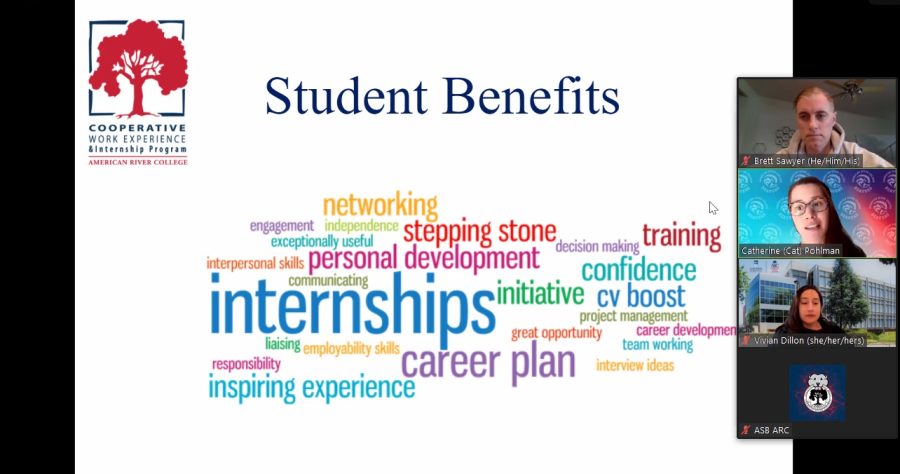Although many topics were discussed at the American River College Student Senate meeting on April 12, a main point of concern was the implementation of AB 1705, a bill that could create academic problems for students.
Gov. Gavin Newsom signed the bill into law in September 2022. On the surface, AB 1705 looks like a regulation that deals with placement in community colleges, but it is more than that.
According to Alicia Szutowicz-Fitzpatrick, club and events board vice president and representative on the student senate, the bill requires students to start classes at a fixed level.
One key aspect that the senate highlighted was the difficulties that science, technology, engineering and math majors might face due to the new bill.
“In STEM you will start at calculus,” Szutowicz-Fitzpatrick said. “There are requirements in other majors. English you [can] still start at 300, but math especially, you’re starting at a higher level with that particular major.”
Szutowicz-Fitzpatrick said that it is essential to find out more information from the deans and chairs of the STEM programs to get a deeper insight about how this change affects students.
“We know that it’s very hard for disproportionately impacted students to come in with the dream of being a doctor, and then not meet financial aid requirements because they’re going to fail their first class,” Szutowicz-Fitzpatrick said.
The notion that some students might not be fully prepared to succeed in these classes was raised by the senate.
“Some students have only passed up to Algebra 1 in high school,” Kevin Hill, student senate president, said.
Hill mentioned that the majors that fall under the STEM umbrella are a wide range.
“We think of STEM majors as like, biology, math and engineering,” Hill said. “But there are other sub-majors that fall under the classification that you would think ‘you don’t need to take this kind of class for that major.’ Kinesiology is a STEM major.”
Students who are entering their first semester of college will be highly impacted by the adjustment, according to Hill.
“There’s a variety of [student’s whose] majors aren’t heavily math focused, that are now coming in with Algebra 1 level math because they were told by their counselors that they didn’t need math for college because their major doesn’t require it,” Hill said. “Now [they’re] being forced to make calculus the first math class they have.”
Joe Bly, student senate vice president and a STEM major, added that through discussions with peers and his own research, he has not only established that there are many unsupportive teachers in STEM and other inadequacies taking place as well.
“There’s kind of a lack of awareness of basic tutoring and mentoring on campus that can be better for students,” Bly said.
Members of the senate stressed the deficiency of sympathy from educators. The senate emphasized that teachers are supposed to be there to assist students instead of executing a shift that could negatively affect those they were hired to help.
“If we have professors who have an expectation for the level of proficiency of their students coming in, and are not providing basic instructions in the fundamentals of calculus and are just expecting students to come in and hit the ground running,” Jerry Kennedy, student senate director of finance, said. “Those students have only taken Algebra 1 or Algebra 2 in high school. This absolutely sets people up for failure.”
So far, a resolution has not been completed, but the senate plans to use a finished resolution to present to other community colleges and legislative bodies with the goal of amending AB 1705 in a way that will prevent students from falling into a poor academic standing.


